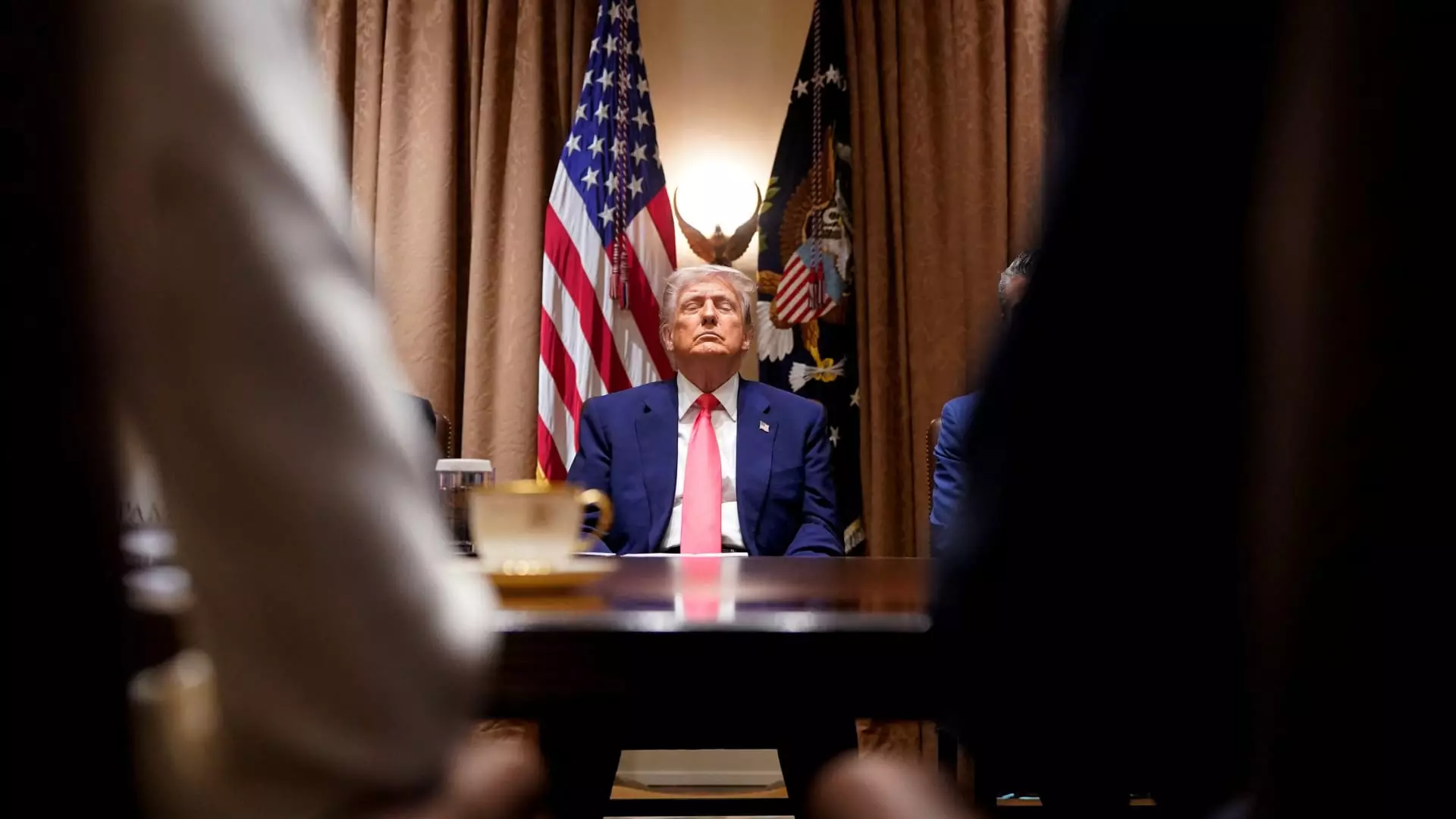In a bold move that reverberates across the nation, a group of five small businesses has stepped forward to challenge the legitimacy of President Donald Trump’s sweeping tariffs on foreign imports. The heart of their lawsuit, filed in the U.S. Court of International Trade, is a scathing critique of what these business owners view as an egregious overreach of presidential power. With a robust legal argument, they assert that Trump is circumventing Congress’ authority by declaring trade deficits—long-standing economic phenomena—an “emergency.” This alarming trend not only threatens the livelihood of countless small business owners but also raises profound questions about the rule of law and the separation of powers.
The Misuse of Emergency Powers
The plaintiffs, represented by the Liberty Justice Center, argue that the president’s use of the International Emergency Economic Powers Act (IEEPA) to impose tariffs lacks constitutional grounding. The legality of these tariffs rests on a shaky premise; trade deficits do not equate to emergencies. The claim that ongoing trade imbalances pose an “unusual and extraordinary threat” is nothing short of a fabrication, constructed to justify an unrestrained grab for power. This misuse of authority not only undermines democratic principles but also sets a dangerous precedent for future administrations, inviting further executive overreach.
Real-World Consequences for Small Enterprises
The impacts of these tariffs are not just academic; they are felt in the everyday operations of small businesses across America. The plaintiffs represent a diverse array of industries, from importing specialty wines to manufacturing educational kits and women’s cycling apparel. Take, for instance, Terry Precision Cycling, which has already faced a staggering $25,000 in unexpected tariff fees this year alone; projections suggest that this figure could balloon to $1.2 million by 2026—a sum that would cripple a business of its modest size. This stark reality highlights the dissonance between high-level policy decisions and the granular consequences these decisions have on local economies.
An Unwelcome Precedent
The legal implications of this case extend far beyond the immediate tariffs. If the court allows Trump’s actions to stand, it could embolden future leaders to bypass Congress and enact sweeping economic policies under the guise of “emergency.” This is a clear violation of the principle of “no taxation without representation.” It should be alarming to any citizen who values a government by the people, for the people. The concept of tariffs, typically a product of legislative debate and consensus, risks becoming a tool for unilateral executive action, fundamentally undermining the checks and balances that are supposed to safeguard our democracy.
The Fight for Economic Justice
As these small businesses take their fight to court, they symbolize a larger struggle against corporate overreach and the perils of unchecked governmental power. This lawsuit is not merely about tariffs; it’s a clarion call for economic justice. It represents the collective outcry of entrepreneurs who refuse to accept policies that threaten their enterprises and the very fabric of fair economic competition. The outcome of this case has the potential to resonate far beyond the courtroom, serving as a pivotal moment in the ongoing dialogue about the role of government in our economy and the rights of small businesses in America.

Leave a Reply